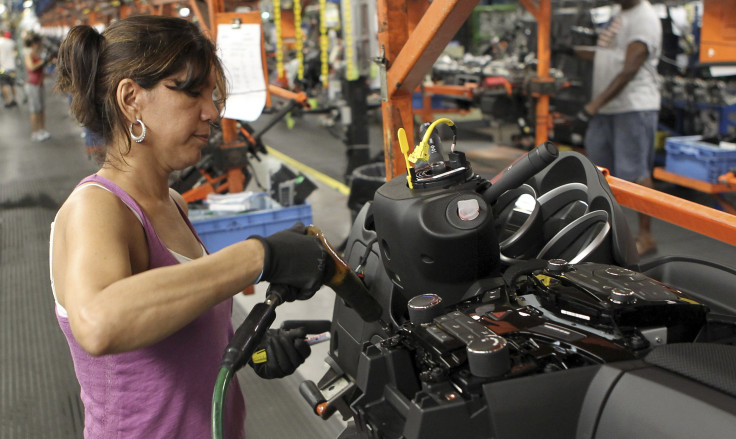US-China Trade War Has 'Larger Negative Effects' Like Job Losses, Study Reveals

KEY POINTS
- Trump's trade war is hurting the U.S. more than its trading partners, says a new study
- Any benefits the U.S. derives from protection against foreign competition have been eliminated by retaliatory tariffs imposed by U.S. trading partners
- In September, U.S. consumers and businesses paid a record $7.1 billion in tariffs
The U.S. trade war against China is misfiring badly and has seriously harmed the manufacturing sector, which is now worse off compared to 2017 before the protectionist trade war began in March 2018.
A new study by experts from the U.S. Federal Reserve suggests Trump's misguided efforts to eliminate America's trade deficits with other countries by resorting to trade policies have backfired. It pointed out any benefits from protection against foreign competition have been more than eliminated by retaliatory tariffs imposed by U.S. trading partners. Trump's trade war has also led to a jump in the cost of raw materials sourced from overseas.
Consequently, the study conducted by economists Aaron Flaaen and Justin Pierce emphasizes Trump's trade war has resulted in job losses among U.S. manufacturing firms and higher prices for consumers.
"We find that tariff increases enacted in 2018 are associated with relative reductions in manufacturing employment and relative increases in producer prices," Flaaen and Pierce noted in their report.
They also found the impact from the traditional import protection channels is completely offset in the short-run by reduced competitiveness from retaliation and higher costs in downstream industries.
Flaaen and Pierce describe their study as “as the first comprehensive estimates of the effect of recent tariffs on the US manufacturing sector.” The study's findings directly contradict Trump's claim the effects of the tariffs have been hurting China and not the U.S. Trump constantly repeats the claim “the U.S. is taking in massive amounts of money” from China. He's also claimed “Billions of Dollars are pouring into the coffers of the U.S.A. because of the Tariffs.”
The new Fed study compared how manufacturing industries profited from tariffs (which are border taxes on imports) to how much damage they took from increases in imported input costs (or the cost U.S. manufacturers pay for foreign-made components and raw materials) and retaliatory tariffs.
The 10 primary industries hit hard by retaliatory tariffs and higher prices are motor vehicles, household appliances, magnetic and optical media, leather goods, aluminum sheet, iron and steel, sawmills, audio and video equipment, pesticides and computer equipment.
It also uncovered that producers of aluminum sheets, steel products, transportation equipment, boilers and household appliances were among industries whose consumer prices increrased the most after tariffs were implemented.

The study pointed out if Trump’s aim in imposing tariffs was to give U.S. products an advantage, this aim was nullified by manufacturers having to raise prices because it costs more to make what they produce and sell.
Non-manufacturing sectors like agriculture continue to suffer from retaliatory tariffs levied by U.S. trading partners. Trading partners will often deliberately target U.S. exports they know are produced by politically powerful economic players to maximize domestic political pressure on the federal government.
For instance, China targeted retaliatory tariffs at U.S. agricultural produce grown in states Trump must carry to win reelection in 2020. Farmers in states such as Iowa, Illinois and Minnesota have really taken a grievous hit because of of the trade war against China. China's refusal to buy U.S. soybeans and other produce has forced Trump to implement a $12 billion farmer bailout many farmers slam as being too small and too inadequate.
Prices for soybeans have dropped to a 10-year low, and soybean exporters rushed to sell their products abroad earlier this year ahead of the impending trade war. In September, U.S. consumers and businesses paid a record $7.1 billion in tariffs.
© Copyright IBTimes 2025. All rights reserved.





















